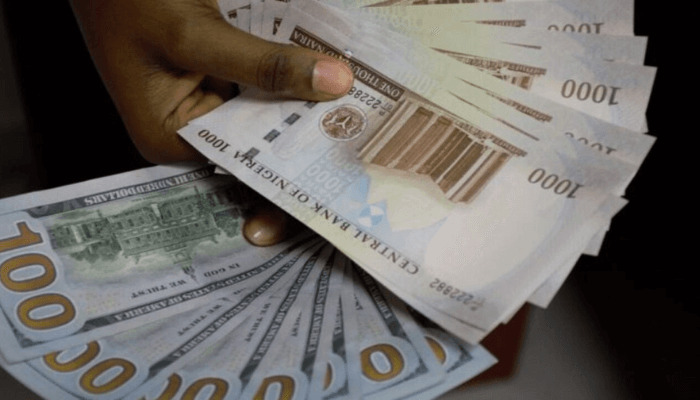There can be no doubting the fact that Nigeria would have been richer than it is if peace were allowed to reign in parts of the country. As a testimony to this fact, when Nigeria rebased her economy in 2013, the country’s gross domestic product (GDP) shot up from $270 billion to $510 billion. That figure has dropped to a little below $435 billion today.
Although the swings in the price of crude oil on the international market at times contribute to the country’s uncertain fortunes, the absence of peace in parts of the country also takes a good share of the blame.
For example, decades-long violent conflict in the Middle Belt region of Nigeria between farmers and pastoralists has devastated local communities, drastically reducing economic activity.
These resource-based conflicts have impeded market development and economic growth by destroying productive assets, reducing production, preventing trade, deterring investment in the private sector, and eroding trust between market actors.
Mercy Corps, a global non-governmental, humanitarian aid organization operating in transitional contexts that have undergone, or have been undergoing, various forms of economic, environmental, social and political instabilities, conducted a research in 2015 and found that:
Nigeria stands to gain up to US $13.7 billion annually in total macroeconomic progress in a scenario of peace between farmers and pastoralists in Benue, Kaduna, Nasarawa, and Plateau alone.
Reductions in farmer-pastoralist conflict are worth up to 2.79 per cent of Nigeria’s officially reported GDP annually.
States affected by farmer-pastoralist conflicts lost an average of 47 per cent of taxes (Internally Generated Revenue, or IGR) due to these conflicts, through 2012.
Such a dire situation should be eschewed, as the country stands much to gain in a peaceful situation. Mercy also conducted an Input-Output (I-O) analysis that yielded both direct and total (direct, indirect, and induced) macroeconomic gains to the Nigerian economy in a hypothetical scenario of peace between farmers and pastoralists.
The potential benefits of peace were broken out into three categories: (a) direct, (b) indirect, and (c) induced. The direct impact includes the jobs, wages, and output of the increased economic activity. The indirect impact includes the jobs, wages, and output deriving from the production of intermediate goods serving as inputs to the sector in question. The induced benefits from the change in demand or supply are those ripple effects caused by the first two. I-O analysis deems the benefits of increases in the supply of a good to be a function of “forward linkages,” while the benefits of increases in the demand of a good are a function of “backward linkages.
Most communities affected by farmer-pastoralist conflict in the Middle Belt engage primarily in the livelihood activities of crop farming, livestock rearing, trading, or some combination thereof. Constraints to these livelihood activities extend beyond communities directly affected by conflict: they impact the Nigerian economy as a whole, as the states of Benue, Kaduna, Nasarawa, and Plateau are central to the country’s food production. Increased peacefulness would thus produce benefits for the Nigerian economy at large.
The industries with the most to gain from farmer-pastoralist peace as measured by direct losses are crop production, food and beverage, and livestock. The industries that would gain the most as measured by total losses are crop production, livestock, and trade. Total losses include direct losses as well as indirect, the reduced economic activity in sectors that serve as inputs to each industry and induced losses, the multiplier effect of the first two.
In addition to the agriculture, livestock, and trade sectors, other industries that stand to benefit most from sustained peace include food and beverage industries, wage-earners, chemical products manufacturing, petroleum products industries, manufacturing, financial services, and textiles.
Finding that there would be growth in the value of the labor market (wage-earners) indicates that either the supply of labor or the value of wages, or both, are being depressed by farmer-pastoralist conflict. That significant gains would be made in industries that conflict-affected households are likely to have minimal direct participation in, such as financial services, indicates the far-reaching effects of farmer-pastoralist conflict on the Nigerian economy.
The scenario presented above captures just a part of the country that is being affected by violence. Many other parts would be much more economically viable only if peace were to reign. This is apart from the fact that the federal government would be able to save much more resources from what is currently being invested to maintain peace in the many conflict areas in the country.
There is no doubt that conflict impacts local and national economies in deep, devastating ways. As Nigeria’s security challenges loom in other regions, the violence in the country must be addressed through smart policies and a commitment to long-term solutions.
Violence does not only affect current economic activities, but future generations as well. In a report released by UNICEF and other concerned government institutions in 2019, the economic impact of the violence against children in Nigeria is estimated to be about USD$6.1 billion, which is equivalent to about 1.07 percent of the country’s GDP.
In sync with the federal ministry of information, there is a need for the National Orientation Agency to sound that wisdom in the consciousness of Nigerians. That body is tasked with communicating government policy, staying abreast of public opinion, and promoting patriotism, national unity, and development of Nigerian society. The duty of the agency suggests that it is saddled with the responsibility of helping Nigerians to understand that that conflict is an impoverishing force.
Countries enmeshed in violence are always poorer than countries that are peaceful.





